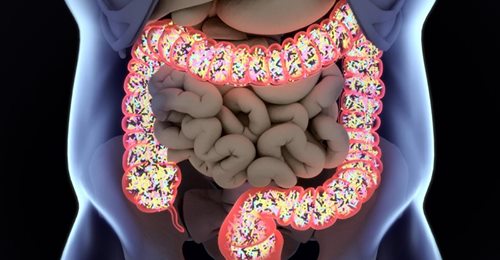Fibro Fix Blog — digestion

4 Steps to Better Digestion 0
Most of the time, we take our digestive system for granted. But when it goes out of whack it’s a whole different story and digestive issues can quickly become all-encompassing. Stomach pain, gas, bloating, diarrhea, frequent bowel movements, constipation, even night sweats and unexplained weight loss or gain are just some of the signs of poor digestive health that people regularly live with. We may start to believe these conditions are “normal for us”.
The Prevalence of Digestive Issues
A 2013 study revealed that 74% of all participants had experienced digestive discomfort for six months or more, yet only 37% sought help from their doctor. Additionally, 56% of those who experienced discomfort didn’t seek medical help because they didn’t believe their symptoms required medical attention.
Ignoring the Signs
Ignoring digestive issues is a dangerous approach to take. Sometimes digestive distress is symptomatic of a deeper medical issue that requires medical attention. It is important to talk to your doctor if you experience ongoing or severe digestive symptoms to understand what is really going on and ensure it’s nothing serious.
What if it’s Nothing Serious?
The good news is that if a diagnosed digestive disease is not the reason for your symptoms, it’s often possible to get your digestion back on track by making a few targeted diet and lifestyle tweaks.
Good Digestion: It All Starts with Chewing Your Food
When your digestive system is acting up, the first step should always be to go back to the basics. Simple but effective, chewing your food properly supports the digestive process and makes nutrient absorption easier for your body. That is because chewing starts the digestive process. Mechanically, it breaks food into smaller pieces to increase its surface area so that your digestive enzymes can get to work more effectively. Chemically, chewing also triggers the production of saliva which contains the first enzyme in a cascade of different enzymes, each triggering the next to achieve complete digestion and absorption of nutrients from your food.
Eating too quickly, while distracted or on the go are often reasons we don’t chew our food well enough. It is more important than many of us realize to set aside ample time to enjoy your meals. If this is new for you, try scheduling meal times like any other priority to help fortify the habit in the beginning.
Digestive Health Tests Can Uncover Imbalances
Optimizing digestive health is an area where Integrative, Functional and Naturopathic medicine excel. We can run laboratory tests to see what is really going on, even if your regular checkup did not give you a diagnosis of digestive disease. We have a full toolbox of strategies to evaluate your digestion and uncover issues that may be at the root of your symptoms, including:
- Stool testing to check your unique microbiome of bacteria and yeasts
- Testing for markers of inflammation
- Checking pancreatic enzyme levels
- Checking for food intolerances and immune markers, as well as celiac antibodies
- Testing for nutritional deficiencies, diabetes indicators, liver function, stress hormones and more.
4 Steps to Supporting Good Digestion
1 - Eat a Digestion-Focused Diet
What you eat matters. Nutrient dense, fiber-rich foods filled with enzymes help your meals move through your digestive system. We are spoiled for choice, and have a variety of vegetables, whole grains, beans, legumes, nuts, seeds and fruit available to us year round.
More Fiber
High Fiiber foods absorb water and other fluids to form a gel-like substance that feeds the good bacteria in your digestive system and soothes the gut wall. This helps provide bulk, which eases the passing of waste through your system.
Fewer Irritants
Reducing sugar and caffeine also aids in the digestive process by reducing irritation that is often caused by gas and unfriendly bacteria - the bacteria that causes gas and cramping feeds off sugar and multiplies. Stevia is a good alternative to sugar and consider Rooibos tea to give you a bit of energy midday rather than that extra cup of coffee, as caffeine can be irritating to the digestive tract.
Probiotic Foods
Eating probiotic rich, fermented foods like unsweetened probiotic yogurt, kimchi, kefir, miso, and sauerkraut helps as well. Probiotics battle bad bacteria in your digestive system and lower the ph levels in the colon which supports your gut lining and aids in absorbing nutrients.
Healthy Fats
Lastly, fats encourage gallbladder function and thus support the absorption of minerals from your food. Healthy options including avocados, nuts, seeds and their oils as well as fatty fish are all great ways to support your digestive cascade while nourishing your body the right way.
2 - Drink Plenty of Water
Dehydration and constipation go hand in hand. Water is needed to produce digestive enzymes, it helps move nutrients from your food into your cells, it supports your fiber intake by keeping soluble fiber hydrated and puffy so it can do its job of “sweeping” the digestive tract, and it is a crucial part of muscle movement - remember that your gut is a long tube made up of muscles that need to contract in a co-ordinated wave-like motion.
3 - Reduce Stress at Mealtimes
In “fight or flight” mode the body redirects water from your digestive system to serve the immediate survival need, so high stress over time causes constipation and a host of digestive symptoms. Keeping stress low is particularly important during mealtimes as the body needs to be in a state of calm for digestion to occur at all.
Slow down and make a conscious effort to sit down at a table to eat your meal. Turn off any screens, take slow, deep breaths and pay attention to the pleasure of good food, and if you’re lucky, good company. This will help put your body into “rest and digest'' mode and enable the body to do what it needs to do next in the digestive cascade.
4 - Make Sure to Move
Digestive health pioneer Dr. Bernard Jensen famously said “After your meal, sit a while, then walk a mile.” Research has shown us that exercise can indeed improve the rate at which you digest food. Gravity and movement stimulate peristalsis by helping to trigger various “fullness” receptors in your colon, which triggers healthy peristalsis to push your digested food through the digestive tract at a regular pace. Exercise is also a great stress reducer, which may explain how hearty your appetite for a healthy meal can be post workout.
Helping out your Digestion with Supplements
Digestive Enzymes
For many of us these days, eating well, chewing well and relaxing are not quite enough to bring balance back. If meals still have you feeling overly full, your enzymes may need some support. Your healthcare practitioner can help you to find the right enzyme supplement for your symptoms. Alternatively, digestive enzymes can be found in papaya and pineapple and their mild support may be enough.
Probiotics
The good bacteria in your digestive tract supports gut health by breaking down specific carbohydrates, soothing the gut wall and producing hormones such as serotonin, the “feel-good hormone”. Maintaining that microbiome is essential for avoiding digestive problems like gas, bloating, constipation, and diarrhea - and for mental health.
A good quality probiotic supplement can help replenish and balance your gut bacteria, and research suggests they can help support a healthy gut and digestion even with existing digestive problems. Make sure to get a recommendation from your healthcare practitioner as not all probiotic supplements are created equal.
We are Here to Help
Don’t let poor digestion cramp your style! If you’re experiencing digestive distress, book an appointment with me through Whole Body Medicine, and together we’ll get your digestion back on track, including possibly ordering a GI-MAP test to personalize our approach to your ongoing gut issues. We’re here to help.
Call or email us at: 203-371-8258 (Ext. 2), or info@wholebodymed.com
References
AbbVie, (Nov. 6, 2013.)New Survey Reveals More than Half of Americans are Living with Gastrointestinal Symptoms and Not Seeking Care from a Doctor.
Anderson JW, Baird P, Davis RH Jr, Ferreri S, Knudtson M, Koraym A, Waters V, Williams CL. Health benefits of dietary fiber. Nutr Rev. 2009 Apr;67(4):188-205. doi: 10.1111/j.1753-4887.2009.00189.x. PMID: 19335713.
Boekema PJ, Samsom M, van Berge Henegouwen GP, Smout AJ. Coffee and gastrointestinal function: facts and fiction. A review. Scand J Gastroenterol Suppl. 1999;230:35-9. doi: 10.1080/003655299750025525. PMID: 10499460.
Everhart JE, editor. The burden of digestive diseases in the United States. US Department of Health and Human Services, Public Health Service, National Institutes of Health, National Institute of Diabetes and Digestive and Kidney Diseases. Washington, DC: US Government Printing Office, 2008; NIH Publication No. 09-6443.
Iorgulescu G. Saliva between normal and pathological. Important factors in determining systemic and oral health. J Med Life. 2009 Jul-Sep;2(3):303-7. PMID: 20112475; PMCID: PMC5052503.
McFarland LV. Use of probiotics to correct dysbiosis of normal microbiota following disease or disruptive events: a systematic review. BMJ Open. 2014 Aug 25;4(8):e005047. doi: 10.1136/bmjopen-2014-005047. PMID: 25157183; PMCID: PMC4156804.
Oettlé GJ. Effect of moderate exercise on bowel habit. Gut. 1991 Aug;32(8):941-4. doi: 10.1136/gut.32.8.941. PMID: 1885077; PMCID: PMC1378967.
Patricia JJ, Dhamoon AS. Physiology, Digestion. [Updated 2021 Sep 18]. In: StatPearls [Internet]. Treasure Island (FL): StatPearls Publishing; 2021 Jan-. Available from: https://www.ncbi.nlm.nih.gov/books/NBK544242/
Schloetter, M., Mietus-Synder, M. et al. Metabolic and physiologic improvements from consuming a paleolithic, hunter-gatherer type diet. Dr. Bernard Jensen. Dr. Jensen's Guide to Better Bowel Care: A Complete Program for Tissue Cleansing through Bowel Management. Avery; 1190th ed. edition (Sept. 1 1998)
- Dr. Brady
- Tags: digestion

Digestive Issues? Here’s What You Can Do to Tame Them 0
Good digestion. When it’s all working smoothly, we tend to take it for granted, but when things get out of balance it can quickly become all we think about.- Dr. Brady
- Tags: diet digestion digestive health whole foods
